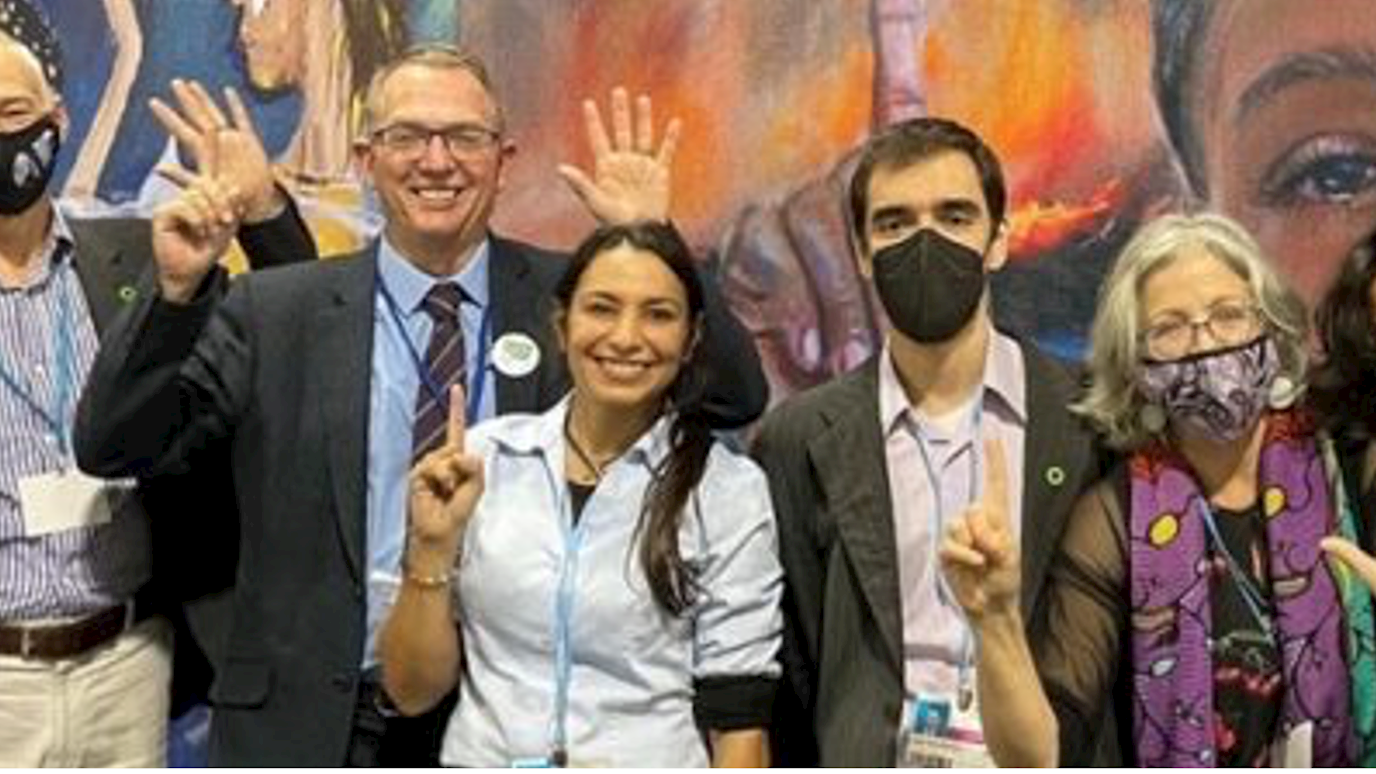Failure to act on SDG 13 will lead to a growing number of climate-related disasters, but there are barriers to investment in its call for climate adaptation, writes Liam Beiser-McGrath.

Climate change is the defining problem of our times. Significant investment in decarbonisation (climate change mitigation) and disaster preparedness (climate change adaptation) are necessary, to both minimise the current consequences of climate change and reduce its future impact. Failure to act will lead to a growing number of climate-related disasters, having profound consequences for humanity’s existence. The United Nations (UN) believes that the climate crisis is ‘a race we can win’ by undertaking ‘bold collective action’ in areas such as decarbonisation, resilience planning and renewable energy generation.
With this in mind, SDG 13 has three main objectives:
13.1 Strengthen resilience and adaptive capacity to climate-related disasters
13.2 Integrate climate change measures into policies and planning
13.3 Build knowledge and capacity to meet climate change
In spite of recognition of these goals, concerns remain about governments’ efforts to meet these goals. Importantly, insights from research on the politics of climate change offer guidance as to the challenges these objectives face and the obstacles that need to addressed in order to produce let alone implement sustainable roadmaps for the future.
Why does climate adaptation receive less attention?
A key tenet of SDG 13 is investment in building adaptive capacity in order to minimise the damage arising from climate related disasters. Yet adaptation has generally received less attention from those promoting more radical climate action, to the extent that some have considered it a taboo in this sphere.
Why are adaptation efforts seen in this light? Adaptation focuses on limiting the damage brought by climate disasters but is silent on tackling the root cause, greenhouse gas emissions. Governments and private sector companies have spoken of the need to invest in climate adaption as a necessary intervention to promote more immediate technologies and solutions to reduce overall carbon emissions. However, organisations and individuals that seek to mitigate climate change, through substantial emission reductions, have therefore been loath to put political capital behind adaptation measures, as they are considered a diversion from decarbonisation. As the 2015 Paris Agreement notes under Article 7, ‘[the Agreement] establishe[s] a global goal on adaptation – of enhancing adaptive capacity, strengthening resilience and reducing vulnerability to climate change in the context of the temperature goal of the Agreement’.
Investment in adaptation also suffers from political incentives, which are not necessarily aligned with achieving significant protection from climate-related disasters. While important, reducing the impact of climate disasters is not the only consideration politicians have when enacting policy. The public is more supportive of policies that react to adverse climate events, rather than those that proactively minimise the potential for damage, such as flood defences. This is most clearly evidenced in the US, where research finds that voters are more supportive of incumbents who prioritised spending on disaster relief compared to disaster preparedness.
While most relevant for recommendation 13.1, these insights also speak to the other recommendations (13.2 and 13.3). The integration of climate change measures into policies and planning, and the building of knowledge and capacity, are not clearly visible and understandable to the public at large. This is particularly in comparison to large responses to climate disasters after the fact. As a result, politicians are incentivised to respond to disasters, rather than prevent them, meaning that there are few political rewards for large-scale investment in climate change adaptation.
Overcoming short-termism by linking to direct benefits
How can politicians overcome these pressures for immediate visible benefits, when dealing with a long-run problem such as climate change? Recent research by Royal Holloway academics finds that pairing policies that meaningfully impact climate change, such as carbon taxes, with direct benefits to the population can achieve enough buy-in from the public to overcome these political incentives. Such approaches are called ‘revenue recycling’. By using the revenue generated from carbon taxation to fund tax rebates, support for climate policy can be increased substantially. This suggests that directly integrating climate policy within redistributive programmes (13.2) can generate political support for climate policy. Such an approach has influenced advocates for a Green New Deal, originating in the USA but spreading globally, who call for linking economic and social programmes with efforts to tackle climate change and its consequences.
Image shows a marcher for the Green New Deal in Detroit, US, carrying placards that read ‘Green New Deal Means Good Green Union Jobs’ and ‘Unions For All’. Photo by Becker1999.
Urgent action to combat climate change and its impacts is beset by political problems. Politicians are incentivised to prioritise current events, and often fail to benefit from avoiding disaster in the first place. This time inconsistency problem hampers meaningful climate policy. However, research on the politics of climate change helps us both diagnose these political barriers and design policy that overcomes them. There are opportunities for academic scholarship to act as idea entrepreneurs, offering insights into what measures are not only needed for decisive climate action but what is likely to command support from electorates and information environments battling with accusations of distortion and ‘fake news’. Explicitly linking climate policy to economic benefits for the populace, through revenue recycling, offers a way to overcome these political hurdles and achieve SDG 13 in a manner that is both politically feasible and economically just.
Dr Liam Beiser-McGrath is a Lecturer (Assistant Professor) at the Department of Politics, International Relations, and Philosophy at Royal Holloway, University of London. Liam is also Director of the PECC Lab (Politics of the Environment and Climate Change) at Royal Holloway, a Research Associate at ETH Zürich and organiser of EPG Online, an online seminar series covering Environmental Politics and Governance.

























